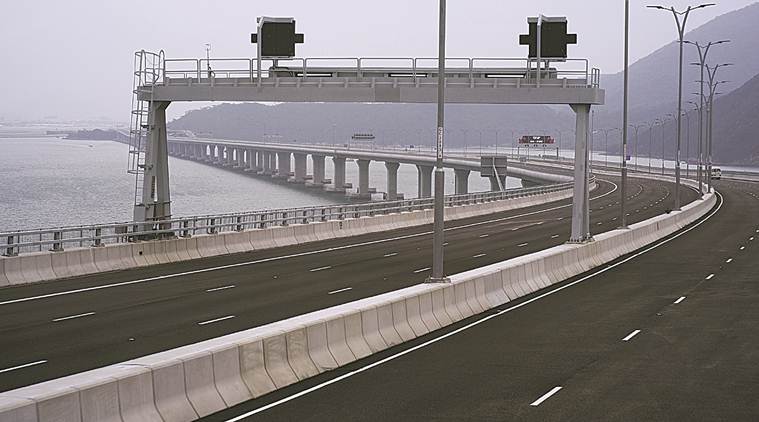China opens world’s longest sea bridge connecting Hong Kong to Macau and Zhuhai
But, the critics have called the bridge a "white elephant" and a "blood and sweat project", noting 10 workers have died and more than 600 were injured during its construction, the Post reported.

The bridge as seen on Friday, ahead of its inauguration. It will be 55 km long, including an undersea tunnel. (AP Photo)
China on Tuesday officially opened the 55-km-long sea bridge, said to be the world’s longest, connecting Hong Kong to Macau and the mainland Chinese city of Zhuhai.
President Xi Jinping inaugurated the USD 20 billion bridge at a special ceremony held in Zhuhai, in southern China’s Guangdong Province, attended by about 700 guests, including the leaders of Hong Kong and Macau.
It was opened with a one sentence speech by Xi, the Hong Kong-based South China Morning Post reported.
The construction of the bridge started in December 2009 and was to be completed in 2016.
Situated in the Lingdingyang waters of the Pearl River estuary, it will be the world’s longest sea bridge, the state-run Xinhua news agency said.
China claims credit for building the world’s longest bridge, the 164.8-km-long Danyang–Kunshan Grand viaduct on the Beijing- Shanghai high-speed railway.
The 55-kilometre crossing, which includes a road bridge and underwater tunnel, links Hong Kong’s Lantau island to Zhuhai and the gambling enclave of Macau, across the waters of the Pearl River Estuary.
The bridge, which will be opened for regular traffic from Wednesday, will slash the travel time between Hong Kong and Zhuhai from three hours to just 30 minutes, it said, adding it will further integrate the cities in the Pearl River Delta.
Chinese Vice-Premier Han Zheng said the bridge would bring Hong Kong and mainland China closer in terms of economic and trade activities.
Describing the bridge as a sign of successful cooperation between the Chinese mainland, Hong Kong and Macau he said, it is a demonstration of China’s engineering capabilities.
Han, Beijing’s man in-charge of regional economic integration, said that the 55-km-long bridge could facilitate the development of “one country, two systems”, a framework that allows Hong Kong and Macau a certain degree of autonomy.
He said it was the first time the three sides had worked together on a major infrastructure project.
“It opens up all three places for greater exchange in trade and economics. It also enhances the competitiveness of the Pearl River Delta,” the Post quoted him as saying.
The bridge would help Hong Kong and Macau be integrated to mainland China, he added.
Hong Kong Chief Executive Carrie Lam Cheng Yuet-Ngor highlighted the three cross-border infrastructure projects – the Guangzhou-Shenzhen-Hong Kong express rail link, the Hong Kong-Zhuhai-Macau bridge and the Liantang/Heung Yuen Wai boundary control point which will open early next year.
But, the critics have called the bridge a “white elephant” and a “blood and sweat project”, noting 10 workers have died and more than 600 were injured during its construction, the Post reported.
Additional concerns surfaced earlier this year when officials revealed that estimates for the amount of traffic expected for the bridge had been cut.
A 2008 consultancy study had predicted that 33,100 vehicles and 1,71,800 passengers would cross the bridge daily by 2030.
But the estimate was lowered to 29,100 vehicles and 1,26,000 passenger trips in a 2016 study, down 12 per cent and 26 per cent respectively, the report said.






































No hay comentarios:
Publicar un comentario